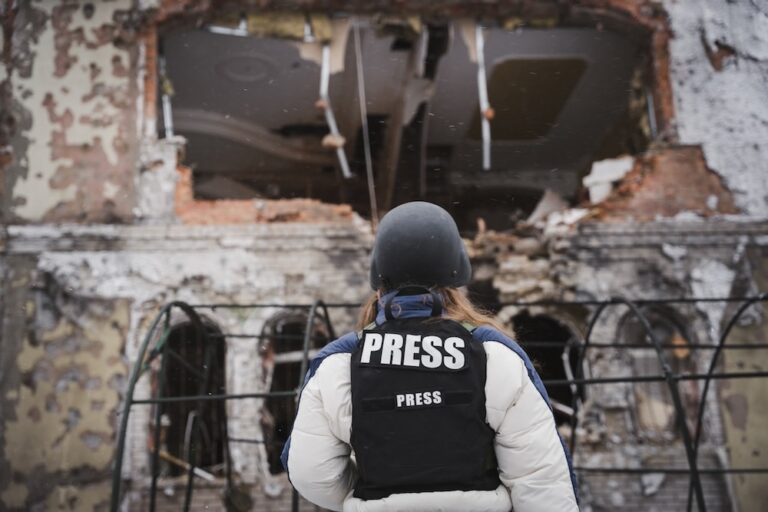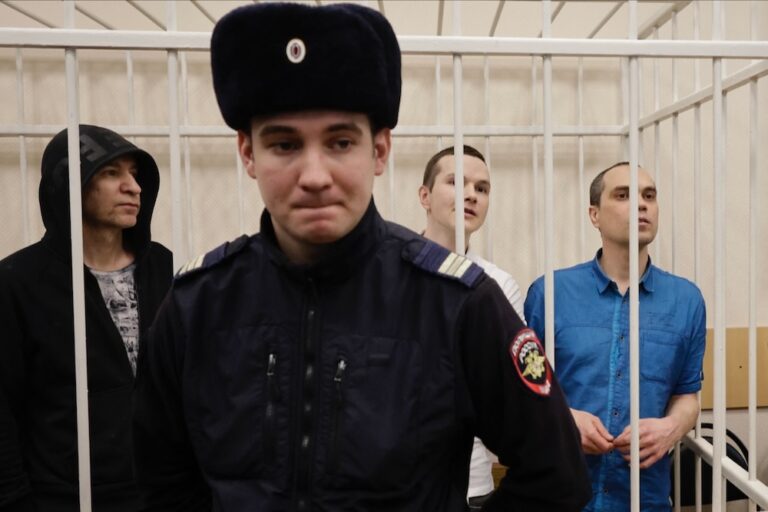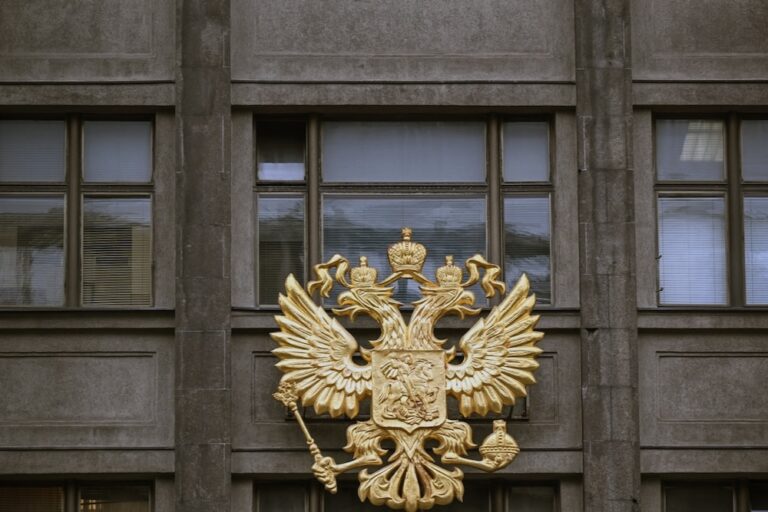(RSF/IFEX) – On 2 April 2002, RSF condemned the “intolerable” state of press freedom in Russia and called on President Vladimir Putin to take steps to correct the situation, which it said was “a grave threat to the future of Russian democracy.” “The government keeps giving assurances about media freedom,” RSF Secretary-General Robert Ménard said […]
(RSF/IFEX) – On 2 April 2002, RSF condemned the “intolerable” state of press freedom in Russia and called on President Vladimir Putin to take steps to correct the situation, which it said was “a grave threat to the future of Russian democracy.” “The government keeps giving assurances about media freedom,” RSF Secretary-General Robert Ménard said in a letter to Putin, “but more and more journalists are being attacked and killed and the legal harassment of some media is forcing the entire press to censor itself.”
According to information gathered by RSF, on 30 March, a legal investigation was launched against Igor Zotov, editor-in-chief of the daily newspaper “Nezavisimaya Gazeta”, owned by businessman Boris Berezovsky, for libelling a Moscow judge. The newspaper’s editorial staff noted that the investigation seemed comparable to the 2001 harassment of Yevgeny Kiselev, head of the TV6 television station. TV6 was the centrepiece of Berezovsky’s media empire before its broadcasting licence was reassigned to a group of journalists who had allied themselves with pro-government figures (see IFEX alerts of 23 and 11 January 2002, 27 and 22 November 2001). Alexei Simonov, president of the Glasnost Defence Foundation, which promotes press freedom in Russia, said the action against “Nezavisimaya Gazeta” showed that the authorities were “continuing their purge of the media” and wanted to “remind all journalists to think very carefully before they wrote or said anything.” In February, the “Novaya Gazeta” newspaper was ordered to pay 30 million rubles (approx. US$962,000; 1.1 million euros) in damages for libel after an article accused a local official of corruption (see IFEX alerts of 19 and 12 March 2002).
Last year’s upsurge in killings of journalists and attacks on them has continued. On 31 March, Valery Batuyev, a reporter for the weekly “Moskovsky Novosti”, who specialises in Chechnya, was murdered at his home in Moscow. A suspect has been arrested and the crime is not thought to be linked to the journalist’s work. Natalia Skryl, an economic reporter for the newspaper “Nashe Vremia”, in Rostov-on-Don (southwestern Russia), was killed on 8 March near her home in Taganrog (see IFEX alerts of 14 and 12 March 2002). Vera Yuzhanskaya, the newspaper’s editor-in-chief, said the murder was connected to Skryl’s investigations into the activities of large firms in the region. On 11 March, someone tried to kill Sergei Solovkin, a correspondent for the fortnightly newspaper “Novaya Gazeta” in Sochi, and his wife (see IFEX alerts of 19 and 12 March 2002). He had recently written articles on corruption in the Krasnodar region.
RSF recalls that journalist Grigory Pasko, who worked for the naval daily “Boyvaya Vakhta”, is in prison after receiving a new jail sentence in December 2001 from the Vladivostok military court (see IFEX alerts of 5 March, 14 and 13 February and 3 January 2002, 27 and 17 December, 24 October, 11 July, 28 and 4 June, 30 May and 22 March 2001, 19 December, 27 November and 26 September 2000, 21 and 20 July, 24, 9 and 4 June, 11 March, 17 February and 20 January 1999, 30 November, 14 October, 21 and 11 May 1998). He was jailed on 20 November 1997 and held for nearly a year and eight months for having “gathered state secrets with intent to pass them on to foreign organisations.” At the time, he was a correspondent aboard the Russian oil tanker TNT 27 and had filmed the dumping of liquid radioactive waste in the Sea of Japan. The footage was shown on the Japanese TV station NHK without Pasko’s consent and caused an outcry in Japan. Pasko had also written about pollution caused by the virtual abandonment of Russian military nuclear submarines and the FSB’s (the Russian security service’s) involvement in the trafficking of nuclear waste.


